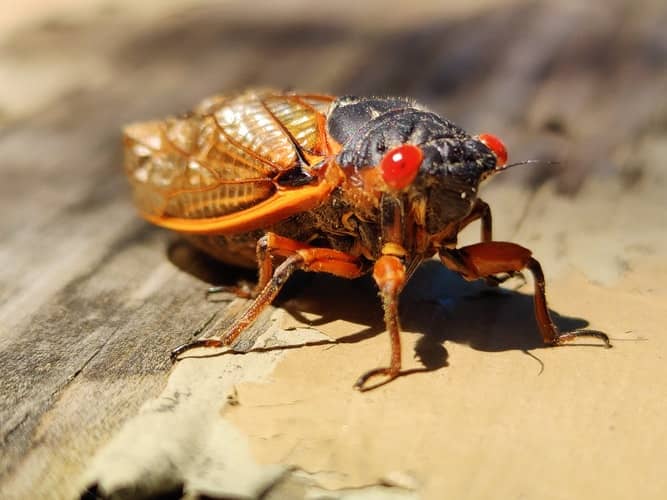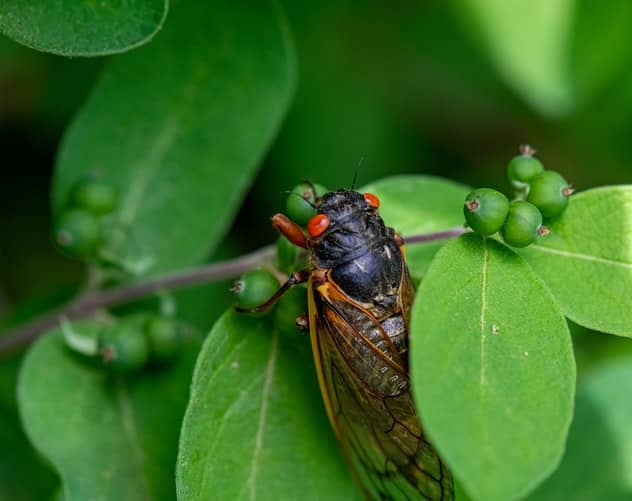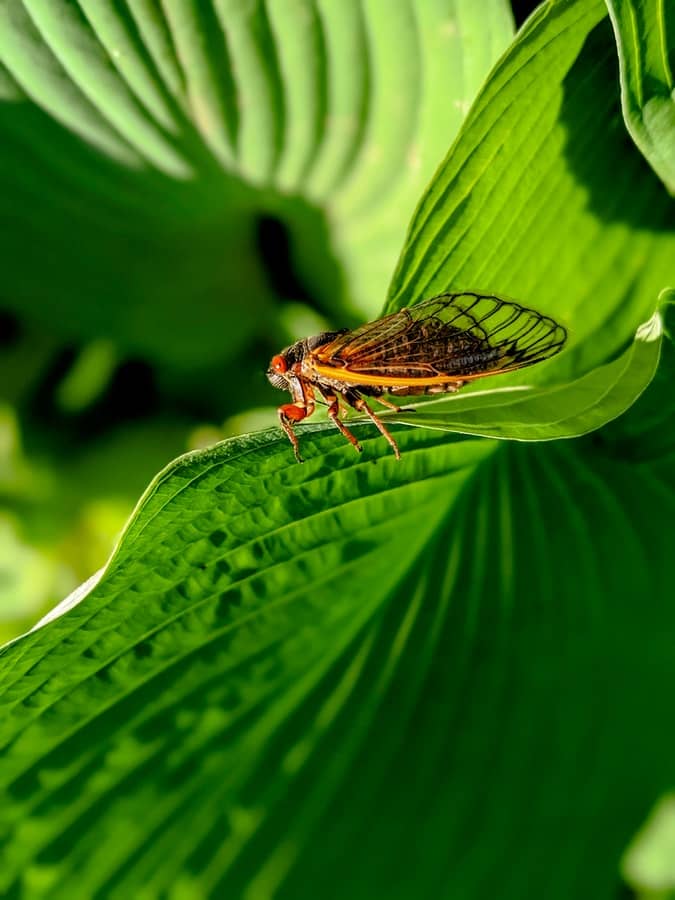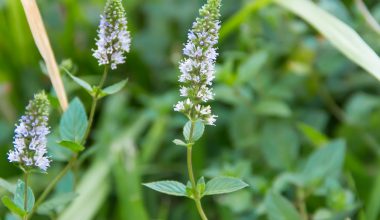If you live in the central, eastern and southern U.S., knowing how to protect your garden from cicadas is essential. They’re super common and start appearing around April or May each year until mid-summer. They’re largely harmless to humans, but most people don’t know what to do when the cicada brood is swarming.
You need to know how to deal with cicadas in your home and garden, just like any other pests. First, this article will explain to you what these loud bugs are. Second, I’ll take you through our top tips for protecting your garden from cicadas. Read on to find out more!
What Are Cicadas?
Before learning about how to protect your garden from cicadas, you may not be familiar with what they are. Cicadas are basically big flies. There are more than 7 species of cicada found in North America. They have distinctive large heads and big wings. They are an unusual bug because they hatch, mate, and then die in a single season.

The most common type of cicada in North America is a periodical cicada. There are several species of these with different life-cycles. Some can spend as many as 17 years underground before they emerge and swarm in your garden. When cicadas emerge it is called a ‘brood‘.
Cicadas are very noisy and appear in huge swarms. So, you definitely need to know how to protect your garden from cicadas when they begin to appear.
Why Do You Need To Protect Your Garden From Cicadas?
Although harmless to humans, cicada broods can cause damage to your property. That’s why knowing how to protect your garden from cicadas is so important.
There are a lot of myths about cicadas and how harmful they are. Generally, large trees and plants are pretty safe. However, smaller plants in your garden might get damaged. You don’t want cicada season to end with all your young or new plants being ruined.
Top Tips For Protecting Your Garden From Cicadas
Now I’ve explained what cicadas are and why you should take precautions for your garden during brood season, it’s time to give you our top tips.
Cover Young Trees And Bushes
Young trees and plants with wood branches are the perfect places for cicadas to lay their eggs. If you have any of these, you need to cover them with netting to stop cicadas swarming on them. You need netting with holes that are 1cm or smaller. Cicadas will fit through the netting if the holes are too big. Tie netting tight around the bottom of the trunk to avoid leaving any gaps.
This is a cheap and easy way to protect your garden from cicadas. You can remove the netting when the season is over.

Avoid New Planting
If you have plans to plant new plants, delay them. Since cicadas like to breed on young plants, you want to avoid giving them any new surfaces to lay their eggs. Consider waiting until later in the summer when cicada season is over to plant anything new.
Chemicals Won’t Protect Your Garden From Cicadas
Chemical insecticides don’t do much to protect your garden from cicadas. Chemical sprays can damage trees more than cicadas themselves. Stick to mesh netting to protect your trees without chemicals.
Conclusion
Although cicadas are loud and not very nice to see in huge broods, they aren’t very harmful to you or your garden. However, knowing how to protect your garden from cicadas is important. This is especially the case if you want to avoid damage to new or young plants. If you have other pests like roaches or carpet beetles, you can use insecticides. However, the best way to protect your garden from cicadas is to avoid chemical methods. Netting and delaying planting work really well.






